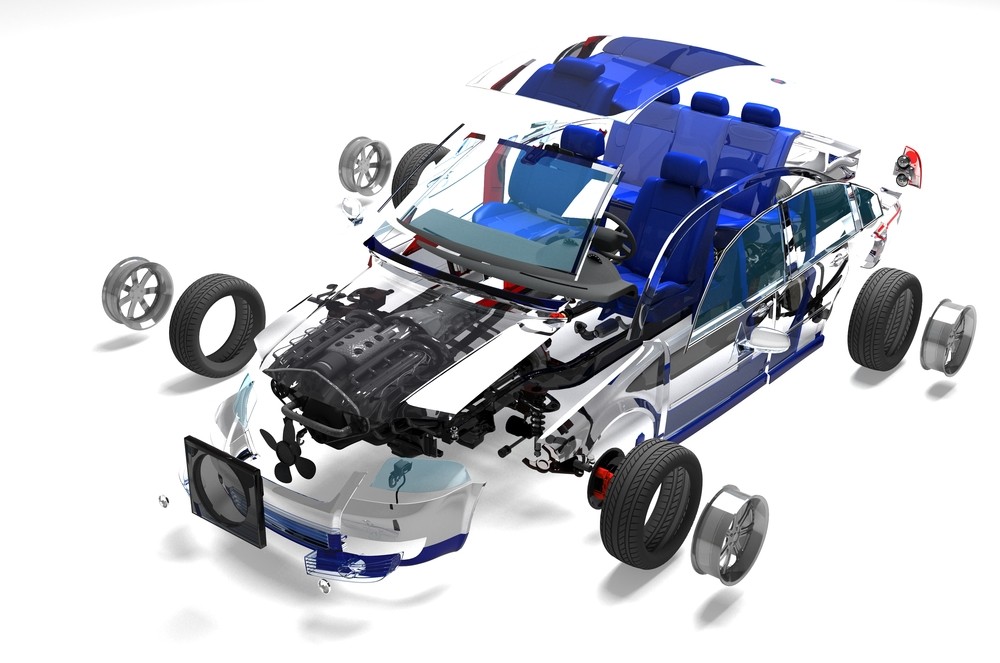That unsettling feeling when you suspect something’s wrong with your car is something every car owner dreads. It’s quickly followed by the even more unpleasant realization that you’re going to have to pay for it. At Car Repair Online, we understand the complexities and costs associated with vehicle maintenance and repair. As vehicles age and accumulate miles, the likelihood of needing repairs, especially expensive ones, increases significantly as factory warranties expire. Beyond the general anxiety about potential breakdowns, the financial burden of unexpected, costly car repairs can be a major concern for any car owner.
For over 15 years, Car Repair Online has been dedicated to providing car owners with the knowledge and resources to navigate vehicle maintenance and repair decisions. While we don’t offer extended warranties directly, we aim to empower you with information to make informed choices about your vehicle’s upkeep. Few things can disrupt your budget faster than a significant car repair bill. Understanding when an expensive repair is a worthwhile investment versus when it might be time to consider other options is crucial for smart car ownership.
Owning a car involves more than just routine maintenance; it’s about managing the unpredictable nature of vehicle component wear and tear. Regardless of your car’s make or model, repair costs can range from a few hundred to thousands of dollars, and some repairs are inherently more expensive than others. From reliable brands to luxury vehicles, no car is immune to requiring a costly fix. Knowing which repairs tend to be the most expensive and understanding the factors that make a repair “worth it” can help you prepare and make sound financial decisions.
In this guide, we will explore some of the most expensive car repairs, providing insights to help you determine when investing in these repairs is the right choice. We’ll cover repairs such as:
- Clutch Assembly Replacement
- Engine Control Module (ECM) Replacement
- Alternator Replacement
- Fuel Injector Replacement
- Head Gasket Replacement
- Timing Belt Replacement
- Radiator Replacement
- Starter Replacement
- Water Pump Replacement
While not ranked in any specific order of cost, these repairs are commonly cited as some of the most expensive and impactful for car owners.
Understanding Expensive Car Repairs: What Makes Them Costly?
Several factors contribute to the high cost of certain car repairs. These often include a combination of expensive parts, complex labor procedures, and the critical nature of the component within the vehicle’s overall operation. For instance, repairs involving the engine or transmission tend to be pricier due to the intricate components and specialized skills required for diagnosis and repair. Electronic components, like the Engine Control Module (ECM), can also be expensive due to the cost of the unit itself and the programming often needed for installation.
Labor costs are a significant part of any car repair bill. Complex repairs that require specialized tools, extensive disassembly, or precise adjustments will naturally have higher labor charges. The time it takes a mechanic to diagnose and fix the problem directly impacts the overall cost. Therefore, understanding the complexity of a repair can provide insight into why some car fixes are significantly more expensive than others.
Common Expensive Car Repairs and When They Might Be Worth It
Let’s delve into some specific examples of expensive car repairs and discuss scenarios where investing in these repairs can be a sound decision.
Clutch Assembly Replacement
Mechanical clutches are essential for manual transmission vehicles, engaging and disengaging the engine from the drivetrain to allow for gear changes. Clutches wear out over time, and while there are often warning signs like slipping or unusual noises, replacement is a significant repair. The complexity of accessing and replacing the clutch, especially in front-wheel-drive vehicles, contributes to the cost.
Typical Cost Range: $1,274 – $1,450
When is it worth it? If your vehicle is otherwise in good condition, and the clutch is the only major issue, replacing the clutch can be worthwhile, especially if the car’s overall value still justifies the expense. Consider the age and mileage of your vehicle and the condition of other components. If the car is relatively young and you plan to keep it for several more years, a clutch replacement can extend its lifespan significantly.
Engine Control Module (ECM) Replacement
The ECM, or engine computer, is the brain of your car’s engine management system. It controls vital functions like fuel injection, ignition timing, and emissions. A faulty ECM can cause a wide range of drivability issues and can be expensive to replace due to the cost of the unit and the necessary programming to match it to your specific vehicle. Damage to the ECM can occur from electrical surges or improper jump starts.
Typical Cost Range: $963 – $1,039
When is it worth it? Similar to a clutch replacement, if the ECM is the primary problem and your car is otherwise reliable, replacing it can be a worthwhile investment. A functioning ECM is crucial for your car’s operation, and without it, the vehicle is essentially unusable. If the car’s value and your need for reliable transportation outweigh the repair cost, ECM replacement is often necessary.
Alt text: Exploded view diagram of a car powertrain highlighting the complexity of internal components.
Alternator Replacement
The alternator is responsible for charging your car’s battery and powering the electrical system while the engine is running. Alternators do wear out and typically need replacement between 50,000 and 100,000 miles. When an alternator fails, your car’s electrical system will eventually shut down, leaving you stranded.
Typical Cost Range: $610 – $795
When is it worth it? Replacing an alternator is usually a necessary repair. A functioning alternator is essential for keeping your car running. Compared to engine or transmission repairs, alternator replacement, while not cheap, is often a more straightforward decision, especially if the car is still serving your needs well.
Fuel Injector Replacement
Fuel injectors spray precise amounts of fuel into the engine for combustion. They are critical for engine performance and fuel efficiency. Faulty fuel injectors can cause poor engine performance, misfires, and reduced fuel economy. Replacement can be expensive, particularly in vehicles with multiple injectors or difficult-to-access injector locations.
Typical Cost Range: $634 – $759
When is it worth it? If your car is experiencing fuel injector issues and is otherwise in good shape, replacing them can restore performance and fuel efficiency. Consider the number of injectors needing replacement; replacing a single injector might be more cost-effective than replacing a whole set.
Head Gasket Replacement
The head gasket seals the engine cylinders, preventing coolant and oil from leaking and mixing. A blown head gasket can lead to serious engine damage from overheating and coolant leaks. While the gasket itself is inexpensive, the labor to replace it is extensive, often requiring significant engine disassembly.
Typical Cost Range: $1,853 – $2,149
When is it worth it? Head gasket replacement is one of the more expensive repairs and requires careful consideration. If caught early before significant engine damage occurs, it might be worth repairing, especially if the engine block and cylinder head are not warped or cracked. However, if there’s evidence of engine overheating or extensive damage, the overall cost could escalate, making replacement less justifiable.
Timing Belt Replacement
The timing belt synchronizes the rotation of the crankshaft and camshaft, ensuring proper valve timing. A broken timing belt can cause severe engine damage as pistons and valves collide. While timing belt replacement itself isn’t extremely expensive, preventative replacement at recommended intervals is crucial to avoid catastrophic engine failure.
Typical Cost Range: $598 – $773
When is it worth it? Timing belt replacement is primarily preventative maintenance. Ignoring it can lead to much more expensive engine repairs. Therefore, replacing the timing belt at the manufacturer’s recommended interval is almost always worth it to prevent potentially thousands of dollars in engine damage.
Alt text: Wireframe x-ray view of a car highlighting internal mechanical structure and component placement.
Radiator Replacement
The radiator is a critical part of the engine cooling system. Damage or leaks can lead to engine overheating, which can cause severe engine damage. Radiator replacement costs can vary depending on the vehicle and complexity of the cooling system.
Typical Cost Range: $1,020 – $1,172
When is it worth it? A functioning radiator is essential to prevent engine overheating. If your radiator is leaking or damaged, replacement is usually a necessary repair to protect your engine. Consider the age of your cooling system components; if hoses and other parts are also old, it might be wise to replace them concurrently.
Starter Replacement
The starter motor cranks the engine to start the car. A failing starter can result in difficulty starting the engine, or no start at all. While starters can last for many years, they eventually wear out.
Typical Cost Range: $426 – $581
When is it worth it? A functioning starter is obviously necessary to use your car. Starter replacement is generally a worthwhile repair, especially if the battery is confirmed to be in good condition.
Water Pump Replacement
The water pump circulates coolant through the engine and radiator, maintaining engine temperature. A failing water pump can lead to engine overheating. Like timing belts, water pumps sometimes fail without warning, or they can leak coolant gradually.
Typical Cost Range: $744 – $884
When is it worth it? Water pump replacement is crucial to prevent engine overheating. If your water pump is failing, replacing it is a necessary repair to protect your engine from potentially severe damage. It’s often recommended to replace the timing belt at the same time as the water pump, if applicable to your vehicle, as labor overlap can save on overall costs.
Factors to Consider: Is the Repair Worth the Cost?
Deciding whether an expensive car repair is “worth it” involves considering several factors beyond just the repair cost itself.
- Vehicle Age and Mileage: For older, high-mileage vehicles, expensive repairs become more questionable. The overall remaining lifespan of the car might be limited, and other components may be nearing the end of their service life.
- Overall Vehicle Condition: Assess the condition of other major systems – engine, transmission, suspension, brakes, body. If the car has multiple issues or is in poor overall condition, investing in a costly repair might not be the best financial decision.
- Repair Cost vs. Car Value: Compare the repair estimate to the car’s current market value. As a general rule, if the repair cost exceeds the car’s value or a significant percentage of it (e.g., 50%), it may be time to consider alternatives.
- Long-Term Ownership Plans: If you plan to keep the car for many more years, investing in repairs to maintain its reliability can be justified. However, if you are considering selling or trading in the vehicle soon, a major repair might not be a wise investment.
Mitigating Expensive Car Repair Costs
While you can’t entirely avoid car repairs, there are steps you can take to mitigate the financial impact of expensive fixes:
- Regular Maintenance: Following your car’s recommended maintenance schedule is crucial. Regular oil changes, fluid checks, and timely replacement of wear items like timing belts can prevent larger, more expensive problems down the road.
- Emergency Fund: Having an emergency fund specifically for car repairs can provide a financial cushion when unexpected issues arise.
- Shop Around for Quotes: Get estimates from multiple repair shops before committing to expensive repairs. Labor rates and parts prices can vary.
While Car Repair Online does not offer extended warranties, understanding the potential for expensive car repairs highlights the importance of financial planning for vehicle maintenance.
Making Informed Decisions About Car Repairs
Expensive car repairs are an inevitable part of car ownership. By understanding which repairs tend to be costly, assessing the overall condition and value of your vehicle, and considering your long-term ownership plans, you can make informed decisions about when an expensive car repair is a worthwhile investment. Being proactive with maintenance and planning for potential repair costs are key to responsible and financially sound car ownership.
For more information on car maintenance and repair topics, visit Car Repair Online regularly.



